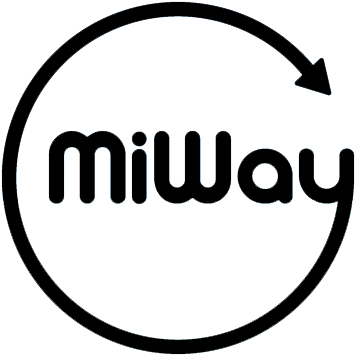AI Calling Software

The Power of AI Calling Software
As a professional with over two decades in the industry, I have witnessed the transformative power of AI Calling Software firsthand. This technology is more than just a trend; it's reshaping how businesses engage with customers by providing a real human-sounding voice that performs tasks like lead qualification, prospect warming, and appointment setting. AI Calling Software is a must-have tool for forward-thinking sales teams.
Benefits of Using AI Calling Software
Enhanced Efficiency: With AI Calling Software, mundane tasks such as manual outreach are replaced with automated ones, significantly improving efficiency. This allows sales teams to focus on closing deals rather than chasing leads.
Round-the-Clock Operations: Unlike human agents, AI can work 24/7, ensuring no opportunity is missed due to time zone differences or off-hours.
Cost Savings: By reducing the need for extensive human resources in preliminary calls, companies can allocate their budget more effectively while still maintaining a high level of service.
Consistency: AI Calling Software ensures that every call follows the same script and protocol, maintaining consistency in customer interactions which builds trust and reliability.
Addressing Common Concerns with AI Calling Software
Some business leaders express concerns about the authenticity and trustworthiness of AI Calling Software. It's crucial to disclose when an AI is being used and to ensure robust opt-out options, aligning with industry standards. Maintaining strict Do-Not-Call hygiene is imperative to uphold customer respect and trust.
Moreover, the software must quickly escalate complex queries to human representatives. By integrating with CRM and scheduling tools, AI Calling Software captures dispositions and outcomes, enabling precise tracking of conversion metrics. These systems are designed to keep latency low, ensuring dynamic and natural conversations.
How to Implement AI Calling Software
- Define Your Goals: Determine what aspect of the lead qualification process you aim to automate.
- Select the Right Provider: Choose a vendor that delivers the features and scalability your business requires.
- Integrate Systems: Ensure your AI Calling Software seamlessly integrates with your existing CRM and scheduling tools.
- Train Your AI: Develop detailed prompts and guardrails to maintain conversation relevance and accuracy.
- Monitor and Optimize: Regularly review call transcripts and conversion metrics to refine your approach and maximize ROI.
What Impact Does AI Calling Software Have on Business Growth?
AI Calling Software automates lead engagement processes, allowing sales teams to focus on closing ready-to-go appointments. This efficiency not only maximizes conversion rates but also significantly boosts overall business growth.
- Boosts sales team productivity by automating initial outreach.
- Provides a seamless handoff to human closers for enhanced personal interaction.
- Offers real-time analytics and insights into lead engagement.

Revolutionizing Lead Engagement with AutoCall AI
AutoCall AI is an innovative solution that transforms the traditional approach to lead engagement. The platform uses state-of-the-art voice AI to automate the qualification, warming, and scheduling of sales calls. This system not only saves time but also enhances the efficiency of sales teams by providing high-quality, ready-to-close appointments without the need for manual outreach.
With over 20 years of experience in the industry, I can attest to the significant shift AutoCall AI brings to sales operations. By leveraging natural-sounding voice technology, this system delivers a seamless handoff to human closers, ensuring that every interaction is as impactful as possible.
Why Choose AutoCall AI for Your Business
AutoCall AI is designed to meet the specific needs of sales teams looking to improve their lead conversion rates. Unlike traditional methods that require extensive manual effort, this platform automates the entire process with precision. Here are some compelling reasons to consider AutoCall AI for your business:
- Automated Outreach: Enhance your lead generation by automating initial calls and follow-ups.
- Natural Conversations: Engage prospects with AI that simulates human dialogue.
- Seamless Integration: Connect easily with CRM and scheduling tools for streamlined operations.
By integrating AutoCall AI into your workflow, you can bridge the gap between technology and personal engagement, ensuring that each lead is nurtured effectively.
How Does AutoCall AI Work?
Effectively deploying AutoCall AI involves a few key steps. Based on my experience, the process is straightforward and impactful:
- Setup: Configure your AI agent with specific business parameters and integrate with existing systems.
- Engagement: The AI agent initiates contact with leads, delivering personalized interactions.
- Conversion: Upon qualification, leads are seamlessly transferred to human representatives for closing.
This structured approach allows companies to maximize their outreach efforts while maintaining a human touch where it matters most.
What Are Industry Best Practices for AutoCall AI?
The effectiveness of AutoCall AI relies heavily on adhering to industry best practices. It's crucial to ensure AI agents are clearly disclosed and that consent protocols are strictly followed. Here are some guidelines based on my experience:
- Transparency: Clearly inform prospects that they are interacting with an AI agent.
- Consent Management: Honor opt-out requests promptly, maintaining compliance with Do-Not-Call regulations.
- Quality Assurance: Regularly review call transcripts to keep conversations relevant and accurate.
These practices not only improve the quality of interactions but also build trust with potential customers.
How Does AutoCall AI Integrate with Existing Systems?
AutoCall AI excels in its ability to integrate seamlessly with existing CRM and scheduling systems, a key feature that sets it apart from other platforms. Here's how it works:
First, AutoCall AI connects with tools like HubSpot and Zoho CRM, allowing for the synchronization of lead data. This ensures that information is up-to-date and readily accessible. Next, the AI schedules appointments based on real-time availability, reducing scheduling conflicts and enhancing productivity.
The integration process typically involves a few simple steps: configuring the AI with system parameters, testing the setup for compatibility, and going live with automated calls. This streamlined approach to integration helps businesses maintain continuity while adopting advanced technological solutions.
The Benefits of Using AI Call Assistant in Modern Sales
In the hustle and bustle of today's sales environment, an AI Call Assistant can be a game-changer for businesses looking to optimize their lead qualification process. By offering real human-sounding AI voice capabilities, these assistants streamline contact with potential clients, ensuring a seamless transition from interest to action. The magic lies in their ability to engage leads and schedule appointments without the need for constant human intervention, allowing sales teams to focus on closing deals.
AI Call Assistants excel at performing repetitive tasks, freeing up valuable time for sales professionals. This efficiency boost is particularly evident in industries where speed and precision are paramount. Imagine an assistant who never tires and consistently delivers high-quality interactions -- that's the AI promise. Beyond mere convenience, these systems transform how teams manage outreach, making them indispensable in competitive markets.
Why is the AI Call Assistant Revolutionizing Customer Interactions?
AI Call Assistants revolutionize customer interactions by offering consistent, reliable performance that enhances user experience. These systems provide organizations with a way to maintain high engagement levels, ensuring that every potential lead receives timely follow-up. As an industry veteran with over two decades of experience, I've seen firsthand how integrating such technology can boost conversion rates significantly. The key lies in their ability to qualify leads and warm them up before human intervention is needed.
What makes these assistants stand out is their natural-sounding voice capabilities, which make interactions feel personal and engaging. Companies employing AI Call Assistants often report a notable increase in appointment-setting success, with seamless handoffs to human closers ensuring no potential business falls through the cracks. These features not only elevate customer satisfaction but also make sales operations more efficient.
How Does the AI Call Assistant Process Work?
The AI Call Assistant process is designed to be intuitive and efficient, requiring minimal setup and oversight. Here's a simplified view of the steps involved:
- Voice Setup: Customize the AI voice to align with brand tone and objectives.
- Integration: Connect the AI assistant with existing CRM and scheduling tools for smooth information flow.
- Call Initiation: The assistant automatically reaches out to leads during specified times.
- Lead Qualification: AI assesses the lead's interest and potential with a series of pre-defined questions.
- Appointment Scheduling: For qualified leads, appointments are scheduled, syncing with human sales reps' calendars.
This structured approach allows businesses to handle a larger volume of leads with precision, maintaining high-quality interactions throughout.
Addressing Common Concerns with AI Call Assistants
Implementing an AI Call Assistant can raise questions about data security and user experience. It's essential to address these concerns proactively. Industry best practices emphasize the importance of clear disclosure when AI is involved in interactions. Knowing they have the option to opt-out and that their privacy is respected helps build trust with clients.
To maintain Do-Not-Call hygiene, businesses must ensure their AI systems are regularly updated and compliant with data protection laws. By monitoring AI interactions for quality assurance, companies can swiftly identify and resolve any potential issues, thereby maintaining customer confidence.
- Clear AI disclosure and user consent
- Compliance with data protection standards
- Regular monitoring and quality checks
The Role of AI Call Assistant in Outbound Sales Strategy
As we navigate the complexities of modern sales strategies, the AI Call Assistant emerges as an invaluable asset. By automating outbound lead qualification, sales teams can reach a broader audience while maintaining personal interaction quality. This approach bridges the gap between automation and human touch, enhancing overall sales efficiency.
Effective AI Call Assistants are integrated with CRM systems to provide real-time data insights, enabling sales teams to tailor their approaches based on comprehensive lead profiles. This seamless integration ensures no lead slips through the cracks, maximizing conversion opportunities. As someone deeply involved in sales for over 20 years, I've observed that the most successful deployments are those that marry AI efficiency with human empathy and adaptability.

What are the common concerns about AI Calling Software and how can they be addressed?
Many people worry about the authenticity of AI calls and whether customers will perceive them as genuine. It's essential to disclose when an AI is handling the call, which builds trust and transparency. I've found that mentioning upfront that an AI is assisting isn't just legally prudent, it also shows respect for the customer's comfort. Another concern is data security, especially when dealing with sensitive customer information. Ensuring adherence to data protection practices and privacy standards is crucial. For example, regularly updating systems and staying compliant with Do-Not-Call lists can alleviate these concerns.
AI systems must have robust opt-out options and the ability to escalate complex inquiries to human representatives swiftly. This balances automation with personal touch. When choosing a provider, look for those with proven standards in compliance and human fallback options. Have you ever considered how much trust plays a role in your customer interactions, and what strategies you use to build it?
How can businesses effectively implement AI Calling Software into their operations?
Successful implementation begins with setting clear goals regarding which parts of the lead process you want to automate. Personally, I've seen companies falter when they try to automate too broadly without a focused strategy. Once goals are defined, selecting the right provider is crucial; look for vendors that offer seamless integration with your existing CRM and scheduling tools.
Training your AI is the next critical step. It's not a one-time event but an ongoing process--like teaching a new team member. Regularly monitor and optimize AI performance by reviewing transcripts and conversion metrics. This feedback loop helps in refining the system to meet evolving business needs. Imagine your AI as a dynamic part of your sales team, deserving of as much attention and training as any human member.
What are the primary benefits of using AI Calling Software for businesses?
AI Calling Software can be a game changer in sales efficiency. For example, I once worked with a sales team that freed up over 30% of their time by automating initial outreach processes. This allowed them to focus more on closing deals rather than managing leads.
AI systems operate 24/7, ensuring that you're not missing opportunities across different time zones. They also offer consistency in messaging, which helps in building customer trust. Another significant benefit is cost savings, as AI can handle high-volume tasks that would otherwise require a large human workforce. Have you thought about how leveraging technology might impact your team's productivity?
Why should a business consider using AutoCall AI specifically?
AutoCall AI specializes in bringing efficiency to outbound lead qualification with its natural-sounding voice technology. Unlike traditional outreach that requires substantial manual effort, AutoCall AI automates this process, providing ready-to-close leads directly to your sales team. I've seen firsthand how businesses using AutoCall AI save time and enhance lead conversion rates, thanks to its seamless handoff to human closers.
Another compelling reason to consider AutoCall AI is its integration capabilities, which connect smoothly with CRM systems. This ensures that your data is always up-to-date, facilitating informed decision-making. What are the key factors you consider when evaluating new sales technologies?
How does AutoCall AI integrate with existing business systems?
AutoCall AI excels in integration, which is a critical feature for maintaining operational continuity while adopting new technologies. By connecting with popular CRM tools like HubSpot and Zoho CRM, AutoCall AI keeps your lead data synchronized. This integration ensures that information is not just accurate but also readily accessible for your sales team.
The setup process is typically straightforward--configure system parameters, test for compatibility, and go live. This approach allows businesses to enjoy the benefits of advanced AI technology without the disruptions often associated with new system implementations. How might seamless integration enhance your current sales processes?
What role does the AI Call Assistant play in an outbound sales strategy?
The AI Call Assistant is a pivotal component in modern outbound sales strategies. By automating the initial stages of lead qualification, it expands your reach while preserving the quality of personal interactions. For instance, in my experience, sales teams using AI Call Assistants are able to reach wider audiences efficiently, without sacrificing the personal touch that customers value.
These assistants integrate with CRM systems to provide real-time insights, enabling sales teams to craft tailored approaches based on comprehensive lead profiles. This ensures no lead is left unattended, maximizing conversion opportunities. How do you currently balance automation with personal engagement in your sales strategy?
What are the unique benefits of using an AI Call Assistant in sales?
AI Call Assistants are designed to handle repetitive tasks, freeing up valuable time for sales professionals to focus on closing deals. Imagine an assistant who never needs a break and consistently delivers high-quality interactions--this is the promise of AI. I've observed that businesses see significant efficiency boosts with these systems, especially in fast-paced industries where speed and precision are key.
Not only do they save time, but AI Call Assistants also ensure that every potential lead is engaged promptly and opportunities are maximized. This can be crucial in competitive markets where timing is everything. Have you considered how much time your team spends on tasks that could be automated?
Resources
- Centers for Disease Control and Prevention (CDC) - The CDC is a leading national public health institute in the United States, providing reliable information on health, diseases, and safety.
- World Health Organization (WHO) - The WHO is a specialized agency of the United Nations responsible for international public health, offering global health guidance and resources.
- National Cancer Institute (NCI) - The NCI is a government agency focused on cancer research, prevention, and treatment, offering valuable insights and resources for cancer-related topics.
- Mayo Clinic - The Mayo Clinic is a nonprofit American academic medical center focused on integrated clinical practice, education, and research in various medical fields.
- National Center for Biotechnology Information (NCBI) - The NCBI is a branch of the National Library of Medicine, providing resources and research in the field of biotechnology and life sciences.







































